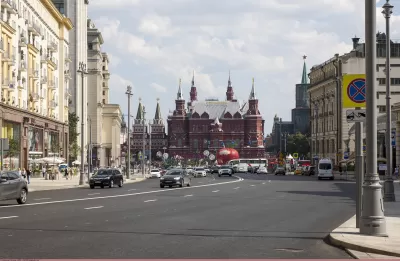Part I occurred when President Biden banned the importation of all Russian fossil fuels on March 8. A month later, Congress passed legislation to codify the embargo. Getting the European Union onboard is proving cumbersome.

“Leaders of the Group of 7 nations pledged during a virtual meeting on Sunday with President Volodymyr Zelenskyy to ban or phase out Russian oil, aiming to still further erode Russia’s economic standing as it pursues its invasion of Ukraine,” wrote New York Times correspondents Emma Bubola and Eduardo Medina on May 8.
However, three of the members, France, Germany, and Italy, would need to have the approval of the 27-member European Union.
“The European Union, which gets about a quarter of its crude oil imports from Russia, has also announced plans for phasing out Russian oil, but is still in talks to formalize the decision,” add Bubola and Medina.
The bloc is too dependent on Russian gas to consider banning it in the short term, but has laid out plans to become progressively independent from it.
The Hungary exception
Barbara Moens, a Brussels-based correspondent for POLITICO, has been following the progress toward the 27-member EU oil ban. Carve-outs for Hungary, Slovakia and the Czech Republic were made in order to give them more time to secure alternate sources of oil, but Viktor Orbán, the prime minister of Hungary and friend of Russian President Vladimir Putin, is driving a hard bargain.
“In the last few days, Hungary has blocked plans for EU-wide sanctions on Vladimir Putin's oil industry, which European Commission President Ursula von der Leyen proposed on May 4,” reported Moens on May 9 in the source article. “Hitting Russian oil sales is seen as vital to limiting a key revenue stream funding Putin's war in Ukraine.”
The Commission is proposing phasing out Russian crude oil imports within six months and refined fuels by the end of this year.
Moens reported on May 10 that “EU officials are considering offering financial compensation” to coax Orbán into an agreement. All 27-members must agree for a policy to be adopted.
Securing Hungary's support for the plan to block all EU imports of crude and refined fuels from Russia is essential to maintaining the political objective of strong and united European opposition to Putin's actions.
Back to the Group of 7, which also includes Canada, Japan, the United Kingdom and the United States. The Times notes that all seven would “continue to provide billions of dollars in military aid and intelligence to Ukraine, which has helped the country thwart Russian forces.”
Hat tip to Matthew Choi, an energy reporter for POLITICO, for noting the difficulty in getting Orbán to agree to the Russian oil ban in Tuesday's Morning Energy newsletter:
Related post:
-
Banning Russian Oil, March 10, 2022
[Noted in comments below that post: Senate votes 100-0 on April 7 to pass H.R.6968 - Ending Importation of Russian Oil Act. On March 9, the House voted 414-17 to pass the bill.]
FULL STORY: No breakthrough on Russian oil ban in talks between von der Leyen and Orbán

Alabama: Trump Terminates Settlements for Black Communities Harmed By Raw Sewage
Trump deemed the landmark civil rights agreement “illegal DEI and environmental justice policy.”

Study: Maui’s Plan to Convert Vacation Rentals to Long-Term Housing Could Cause Nearly $1 Billion Economic Loss
The plan would reduce visitor accommodation by 25% resulting in 1,900 jobs lost.

Planetizen Federal Action Tracker
A weekly monitor of how Trump’s orders and actions are impacting planners and planning in America.

Waymo Gets Permission to Map SF’s Market Street
If allowed to operate on the traffic-restricted street, Waymo’s autonomous taxis would have a leg up over ride-hailing competitors — and counter the city’s efforts to grow bike and pedestrian on the thoroughfare.

Parklet Symposium Highlights the Success of Shared Spaces
Parklets got a boost during the Covid-19 pandemic, when the concept was translated to outdoor dining programs that offered restaurants a lifeline during the shutdown.

Federal Homelessness Agency Places Entire Staff on Leave
The U.S. Interagency Council on Homelessness is the only federal agency dedicated to preventing and ending homelessness.
Urban Design for Planners 1: Software Tools
This six-course series explores essential urban design concepts using open source software and equips planners with the tools they need to participate fully in the urban design process.
Planning for Universal Design
Learn the tools for implementing Universal Design in planning regulations.
Caltrans
Smith Gee Studio
Institute for Housing and Urban Development Studies (IHS)
City of Grandview
Harvard GSD Executive Education
Toledo-Lucas County Plan Commissions
Salt Lake City
NYU Wagner Graduate School of Public Service





























